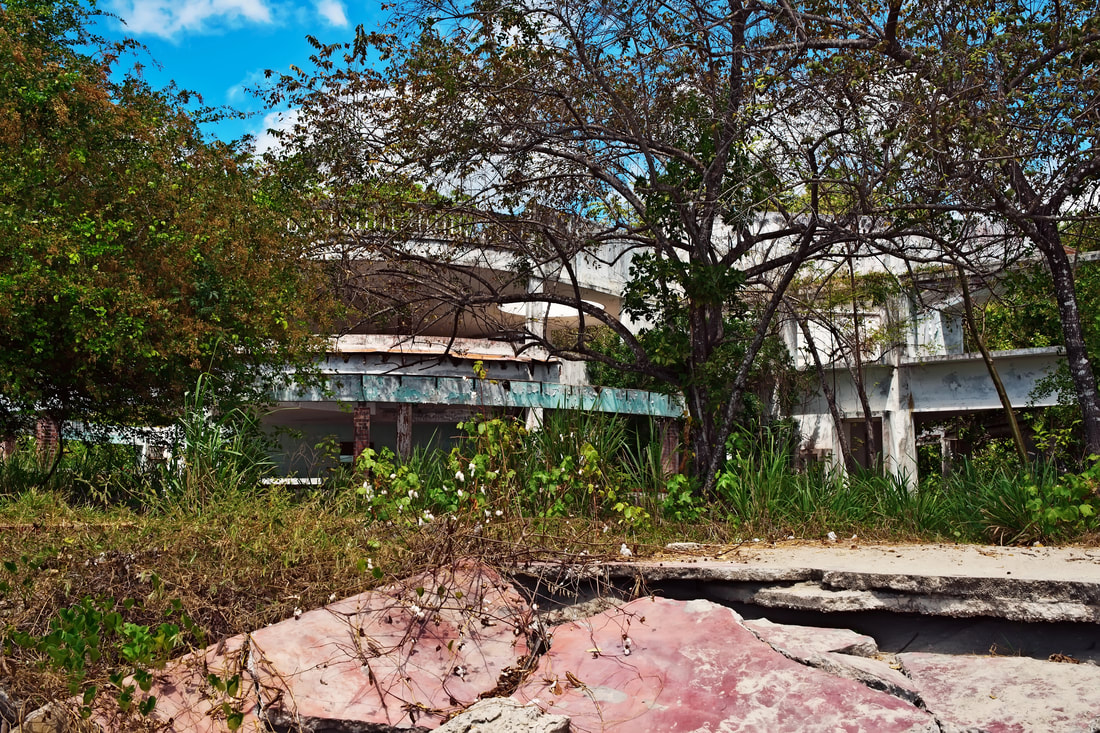One of the most intriguing--albeit dark--chapters of Panama's past revolves around the rise to power of Manuel Noriega. His story is a complex web of political intrigue, shifting allegiances, and the undeniable influence of the United States.
In this blog, I'll take you on a journey through Panama's tumultuous history, uncovering how Manuel Noriega climbed the ranks and exploring the significant role that the U.S. played in his rise to power.
A Tropical Paradise with a Stormy Past
Before we dive into Noriega's rise to power, it's crucial to understand the backdrop against which this drama unfolded. Panama, with its lush rainforests, pristine beaches, and rich culture, is often described as a tropical paradise. However, it's also a nation with a history marked by upheaval, foreign intervention, and complex power dynamics.
Panama: A Strategic Chess Piece
Strategically located as the narrowest land bridge between North and South America, Panama's geographical significance hasn't gone unnoticed. It has been a pawn in the geopolitical chess game, coveted for its canal and its potential as a strategic military base. This reality set the stage for many of the events that unfolded, including Noriega's rise to power.
A Military Man's Ascent: The Early Years of Manuel Noriega
Manuel Noriega's journey began as a young man in Panama, where he entered the military and rapidly climbed the ranks. He was known for his intelligence, cunning, and ability to play the political game.
The Formation of Relationships: U.S. Influence
In the backdrop of the Cold War, the United States began to view Panama as an important ally in the region. This strategic outlook led to close ties between the U.S. government and Manuel Noriega. The U.S. saw Noriega as a valuable asset in the fight against communist influence in Central America.
A Shadowy Deal: The Cocaine Connection
Noriega's rise to power was not without controversy. His involvement in the drug trade raised red flags. It was during this period that he forged a murky alliance with the Medellín Cartel, facilitating the flow of drugs through Panama. The U.S. became aware of these connections but continued to support Noriega, driven by the geopolitical agenda of the time.
Operation Just Cause: The Breaking Point
The relationship between Manuel Noriega and the United States reached a boiling point in 1989. Accusations of drug trafficking, election fraud, and human rights abuses piled up. He was accused of murdering Panamanian physican Hugo Spadafora, who had openly criticized Noriega's leadership. Then, the breaking point came when Noriega cancelled a general election. These were the catalysts that led to Operation Just Cause, a U.S.-led military intervention to oust Noriega from power.
Panama's Struggle for Democracy
Operation Just Cause was a turning point in Panama's history. It marked the beginning of a new era, one in which Panama sought to rebuild itself as a democratic nation, free from the shadow of Noriega's influence. The U.S. played a role in shaping this post-Noriega landscape by supporting the establishment of democratic institutions.
The Legacy of Noriega: Lessons and Questions
Manuel Noriega's rise to power and eventual fall left a profound impact on Panama. His complex relationship with the United States raises questions about the ethics and consequences of foreign policy decisions. It's a story that serves as a lesson in the complexities of international relations, national sovereignty, and the blurred lines between ally and adversary.
Panama's Journey Towards Stability and Prosperity
In the wake of Noriega's removal from power, Panama underwent a period of reconstruction and healing. It embarked on a journey towards political stability, economic growth, and strengthening its democratic institutions. This effort has paid off, with Panama becoming a regional hub for trade, commerce, and tourism.
Reflections from an Expat
As an American expat living in Panama, I've had the privilege of witnessing the country's transformation in the post-Noriega era. Panama's history is one of resilience, evolution, and progress. It's a testament to the people's determination to forge their own path, free from external influences.
Manuel Noriega's rise to power, and the U.S.'s role in supporting him, remains a complex and sometimes uncomfortable part of Panama's past. It's a story that prompts us to reflect on the consequences of foreign policy decisions and the intricate relationships between nations.
Today, Panama stands as a vibrant and diverse nation, welcoming expats like me with open arms. It's a country where the past is acknowledged, but the future is bright and full of promise. Panama's transformation serves as a testament to the resilience of its people and their unwavering commitment to shaping their own destiny.



 RSS Feed
RSS Feed